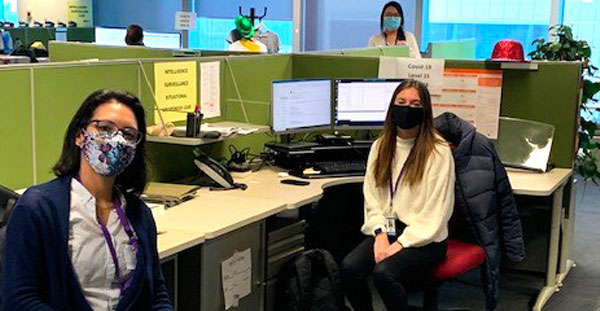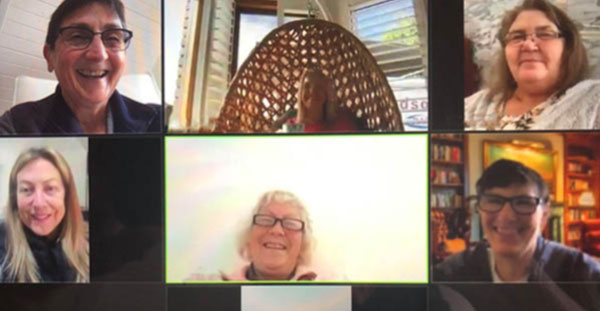COVID-19 has been difficult for everybody, but it’s particularly challenging for those affected by cancer.
Many cancer treatments weaken the immune system, meaning that people going through these treatments are more vulnerable to COVID-19 than those who are healthy and well.
This can be a serious cause of worry and anxiety for people who are going through, or recovering from, cancer treatment. And for their families and loved ones. But we believe no one should go through cancer alone, particularly at a time like this.
Cancer Council Victoria is here to make a difference in people’s lives. We take this obligation very seriously and are responding directly to the needs of cancer patients and their families during the COVID-19 crisis through a wide range of activities. In addition to adjusting our supportive care services to meet the needs of cancer patients and their families, we are also advocating for cancer patients including joining the Raise the Rate campaign, which is calling for a permanent and adequate increase to JobSeeker and other income support payments.
Working with the department of health and human services
Twelve staff and students from our Cancer Epidemiology Division are working with the Department of Health and Human Services (DHHS) to manage the surveillance, data analysis and reporting of COVID-19 in Victoria.
Our staff are engaged in a number of different roles within the COVID-19 response, including overseeing surveillance projects, supporting outbreak reporting, conducting rapid reviews of the emerging evidence around COVID-19, and collecting, cleaning and analysing data.

“My role in DHHS is as a Surveillance Officer in the Informatics Team. Our team’s main responsibility is data entry of questionnaires and electronic lab results. The quality assurance of electronic lab results is really important, as all the detected results will be reflected in total numbers of confirmed cases for the day. I feel more responsible for the community I’m living in since I have been engaged in the DHHS work. I see how our individual behaviour can easily affect the lives of so many people and families.”
– Nazanin Shajiei
Video keeps cancer patients together
Cancer support groups provide a vital connection for people going through similar experiences. Yet with physical distancing putting a hold on face-to-face meetings, video calls are now helping to bring support groups together.

Despite initial reservations, the desire to connect and support each other has given these cancer support groups a push to embrace new technology and transition from face-to-face gatherings to online meetings.
“It’s fantastic! I love being able to have face-to-face support, information and updates by video,” said Sharon from the Beyond Pink Metastatic (Advanced) Breast Cancer Support Group. Sometimes you just need an overwhelming force to spring you into action and try new things.”
Being able to stay in your home and still connect with people for support has seen many groups like Melanoma Patients Australia (Melbourne) Group start running video meetings with group members to keep in touch and connected. This group in particular has observed an increase in ‘attendance’ at the online meetings.
“Some group members who were recently post-operative were able to jump online whereas they would have had to skip an in-person meeting due to not being up to attending,” said Alison, the group’s leader.
“Overall the experience of using new technology has been overwhelmingly positive and relatively easy; we even had people in their 70’s embracing the new technology and enthusiastic about the video calls.”
Video calls also allow groups to meet more regularly, giving them greater flexibility and potential to reach more people.
“So many more people can attend our meetings using this platform especially from the regional and remote areas,” said Alison. “When the COVID-19 social-distancing restrictions ease, we’re canvassing the feasibility of running two groups – one face-to-face and the another via Zoom to extend our reach and connect with even more people.”
Cancer Council has more than 120 recognised support groups around Victoria that meet regularly with trained leaders to provide group support to people affected by cancer. These support groups are entirely donor funded.